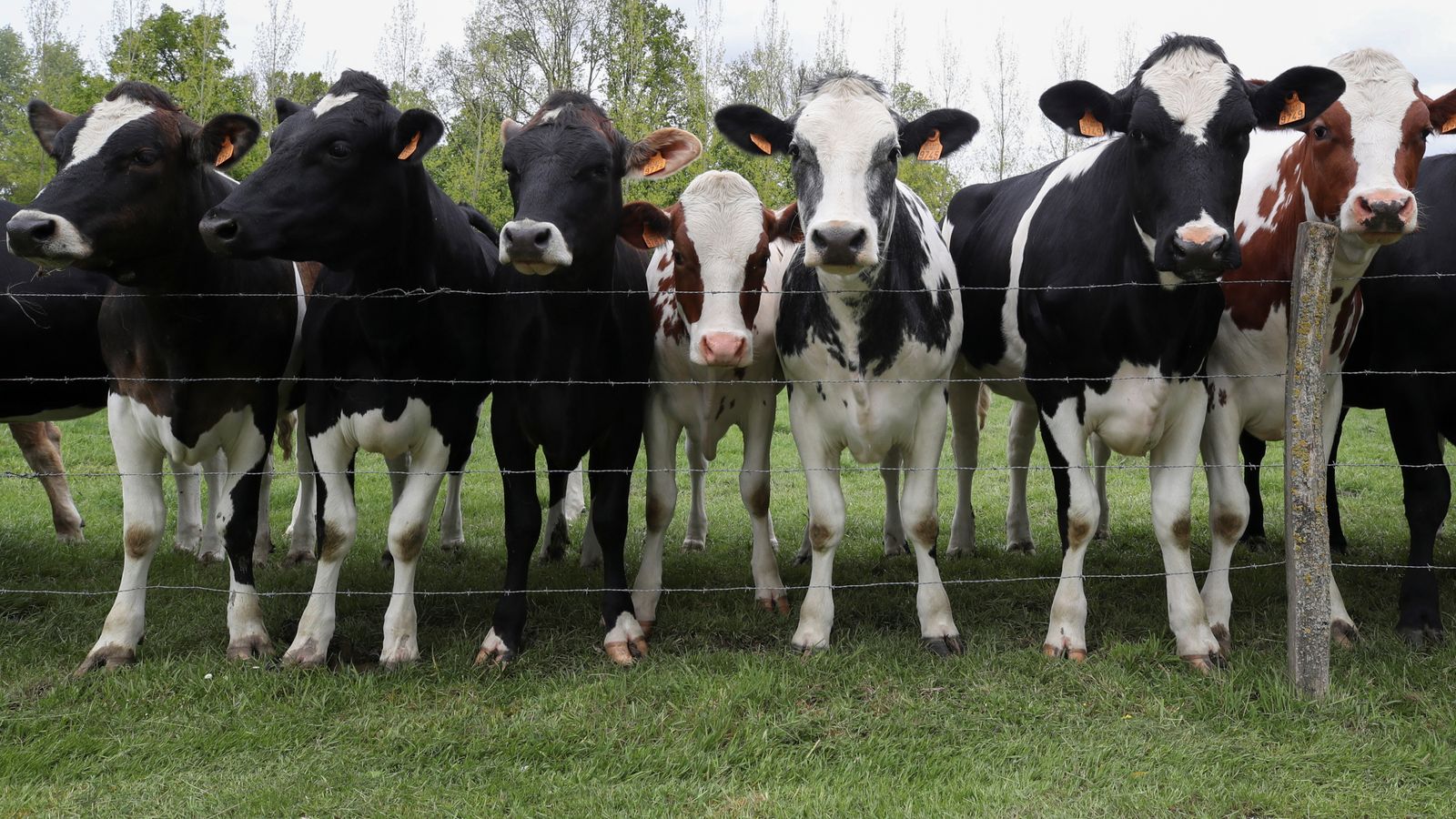Getting rid of animal agriculture and planting trees on the empty fields is our “best and most immediate chance” to slow climate change, according to two prominent vegan scientists.
They say the farming revolution needs to happen in just 15 years – and the effect on global warming would be the same as reducing carbon dioxide emissions by two thirds.
Other climate scientists have criticised the analysis as “extreme and implausible”.
Please use Chrome browser for a more accessible video player
But Professor Patrick Brown of Stanford University and the chief executive officer of vegan food brand Impossible Foods, and Professor Michael Eisen of the University of California, Berkley, who is a consultant for the company, modelled the impact of a global and absolute end to livestock farming.
They calculate that their plan would take the planet half way to the net emissions reductions needed to limit global warming to 2C, the minimum threshold for avoiding the worst impacts of climate change.
Professor Brown told Sky News: “I think the results are solid and I would encourage scientists to look at the results sceptically but with an open mind and draw their own conclusions.
“I think they’ll realise that this is the biggest opportunity to turn back the clock on climate change that we’re ever going to have and we should jump on it.”
Biodiversity: Global count estimates Earth has 14% more tree species than previously thought
Cardboard could be a game-changer as film and TV industry looks to clean up its act
‘Bomb cyclone’ batters US East Coast with Nor’easter bringing mounds of snow and ‘life-threatening’ weather conditions
According to the study, published in the peer-reviewed journal PLoS Climate, a third of the Earth’s land area is used to raise and feed livestock, an “industry” that is responsible for 16% of annual greenhouse gas emissions.
But if trees were planted on the fields instead, they would remove 800 billion tonnes of carbon dioxide from the atmosphere.
Subscribe to ClimateCast on Spotify, Apple Podcasts, or Spreaker.
The combined effect would be to effectively halt the increase in atmospheric greenhouse gases for 30 years, the scientists argue.
Professor Brown said a 15-year phase out of animal agriculture was “not unrealistic”.
And he added: “I’m hoping that others, including entrepreneurs, scientists and global policy makers, will recognise that this is our best and most immediate changed to reverse the trajectory of climate change, and seize the opportunity.”
The Committee on Climate Change, which advises the UK government on its net-zero plans, recognises the challenge in convincing people to give up meat.
Analysis ‘robust’ but ‘scenario is extreme and implausible’, say critics
It says reducing consumption by 35% by 2050 is a more realistic target. The study has been criticised by other scientists.
Dominic Moran, Professor of Agricultural and Resource Economics at the Global Academy of Agriculture and Food Security, said: “The analysis is robust, but the scenario is extreme and implausible and not helpful in policy terms since parts of the world are unlikely to make the transition that is required.
“There is no plausible economic model that would do this in 15 years – unless by prohibition or a swingeing emissions tax or permit system.”
Prof Toby Mottram, Royal Agricultural College, said: “The real problems lie in aviation, concrete production, road transport, coal mining etc. which contribute 85% of the anthropogenic greenhouse gases – not livestock.”
Watch the Daily Climate Show at 8.30pm Monday to Friday on Sky News, the Sky News website and app, on YouTube and Twitter.
The show investigates how global warming is changing our landscape and highlights solutions to the crisis.






















